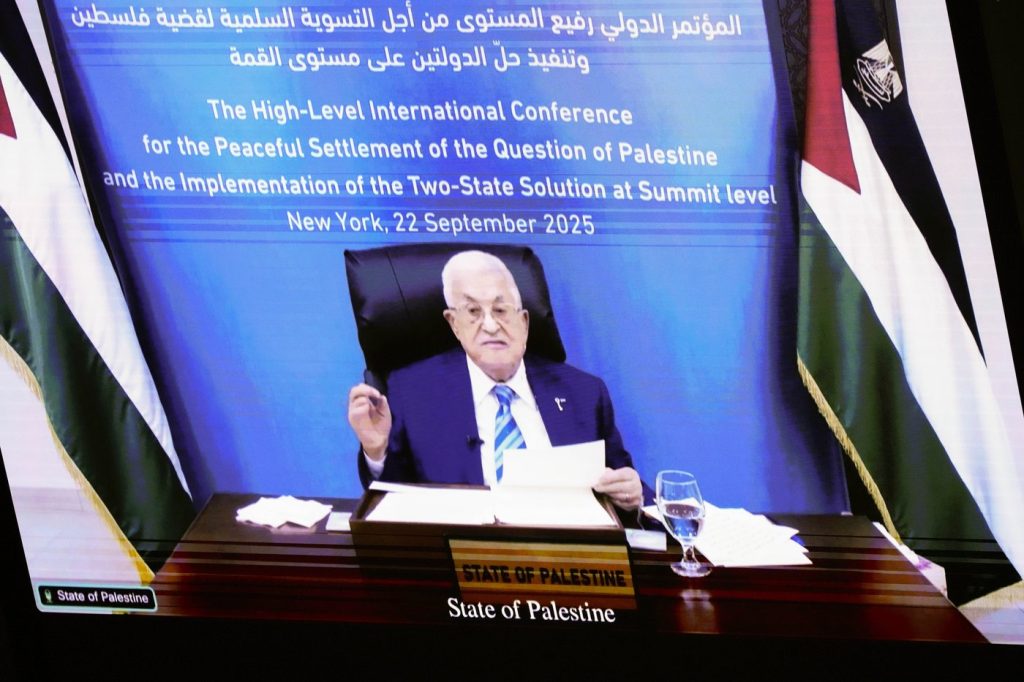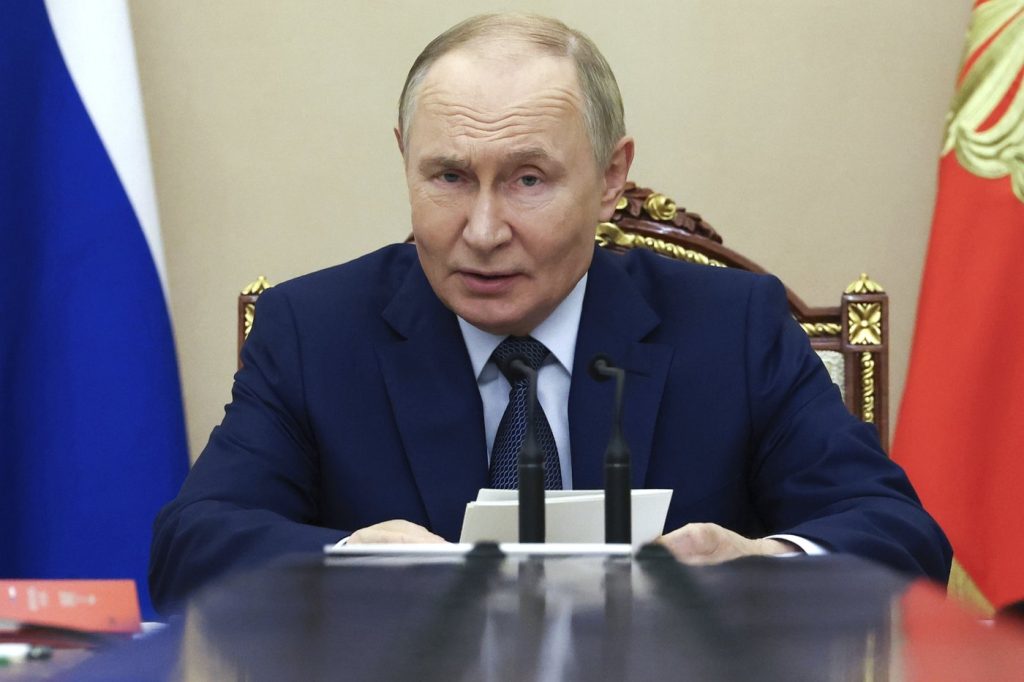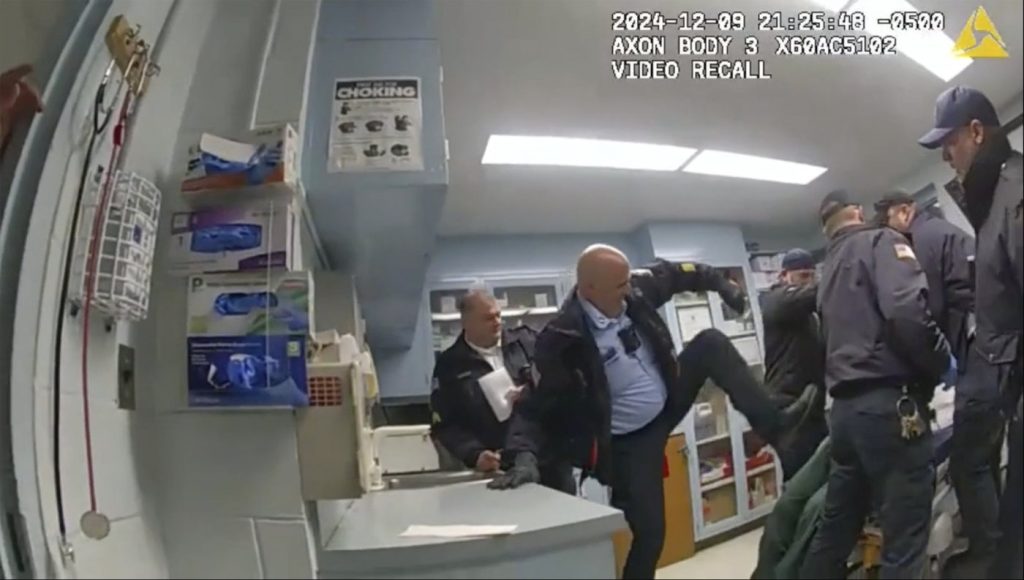UNITED NATIONS (AP) – As the conflict in Gaza continues unabated, France officially recognized Palestinian statehood on Monday during a prominent United Nations meeting aimed at fostering support for a two-state solution to the long-standing Israeli-Palestinian conflict. The recognition is expected to prompt more nations to follow suit, defying both Israel and the United States.
The announcement came from French President Emmanuel Macron in the U.N. General Assembly hall, accompanied by loud applause from the more than 140 leaders present. The Palestinian delegation, including Ambassador Riyad Mansour, stood and applauded in response to the declaration, emphasizing the moment's significance.
Macron stated, "True to the historic commitment of my country to the Middle East, to peace between the Israelis and the Palestinians, this is why I declare that today, France recognizes the state of Palestine." Following France's declaration, other nations such as Andorra, Belgium, Luxembourg, Malta, and Monaco also confirmed their recognition of a Palestinian state, building on similar announcements made by the United Kingdom, Canada, Australia, and Portugal just one day prior.
Despite this expanding recognition of Palestinian statehood, experts believe it will have minimal impact on the situation on the ground, where Israel is actively conducting military operations in the Gaza Strip and expanding settlements in the occupied West Bank.
U.N. Secretary-General Antonio Guterres emphasized that "statehood for the Palestinians is a right, not a reward." This statement indirectly counters the Israeli government's stance, which argues that recognizing statehood would unjustly reward Hamas after its attacks that ignited the current hostilities.
Palestinian President Mahmoud Abbas addressed the assembly via video, as he was denied entry into the U.S. due to visa revocation. He condemned the violence and civilian casualties brought about by the conflict, including Hamas's actions on October 7, urging an end to the cycle of violence. Abbas announced the Palestinian Authority's intention to establish a new social welfare system, which includes halting payments to families of Palestinians killed or imprisoned by Israel—an action that had been long requested by Israel and the United States.
Congruently, Abbas addressed the Israeli people, calling for an end to violence and wishing them a happy new year during Rosh Hashana. His administration, recognized internationally, governs parts of the West Bank, is committed to a two-state solution, and maintains cooperation with Israel on security issues. However, Israel has accused the Palestinian Authority of inciting violence and has ruled out any role for it in Gaza following the military conflict.
The international community has largely supported the recognition of a Palestinian state, with around three-fourths of the 193-member United Nations now acknowledging it. Historically, many Western nations had refrained from such recognition, arguing that statehood should only come as a result of negotiations with Israel. Palestinian representatives expressed hope that these moves towards recognition could eventually lead to independence, with one Palestinian citizen stating, "We are a people who deserve to have a state."
Israel's government, led by Prime Minister Benjamin Netanyahu, remains opposed to the notion of Palestinian statehood, claiming that such recognition would reward Hamas. Netanyahu hinted at potential unilateral steps, including the annexation of parts of the West Bank, which would further obstruct the path towards a viable Palestinian state. U.N. spokesman Stephane Dujarric downplayed threats from Israel, stating that efforts to achieve a two-state solution should persist, despite intimidation tactics.
Netanyahu is facing pressure from his far-right coalition to advance annexation plans, with the United Arab Emirates warning that such actions constitute a "red line." As he prepares to meet with President Donald Trump, Netanyahu's response to the push for Palestinian statehood remains uncertain. The Trump administration has also expressed opposition to the recognition of Palestinian statehood, attributing the disruption of ceasefire talks with Hamas to these developments.
Finally, a phased plan proposed by France and Saudi Arabia aims to eventually establish a reformed Palestinian Authority governing both the West Bank and Gaza with international support. This plan received overwhelming approval from the U.N. General Assembly on September 12, reflecting a growing global consensus on the path towards a two-state resolution to the conflict.












